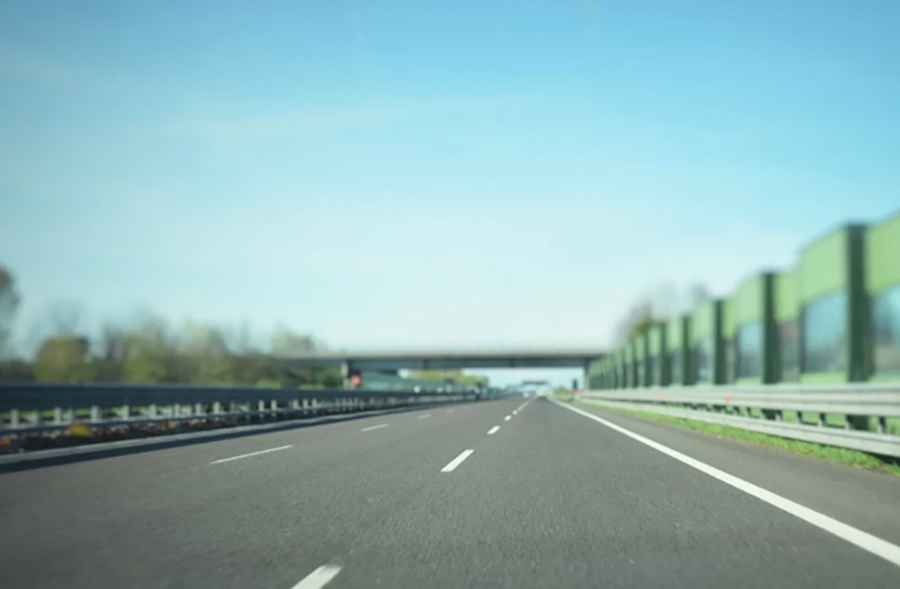Emergency Response on Dangerous Highways: Steps to Take After a Crash
Accidents on highways can be a terrifying experience, but knowing the right steps to take can make a significant difference. This comprehensive guide will walk you through what to do immediately after a crash, with practical tips and expert advice to ensure your safety and help you handle the aftermath with confidence and composure.

Initial Safety Measures
The first moments after a crash are critical. Your primary concern should be ensuring the safety of everyone involved. Turn on your hazard lights to alert other drivers and, if possible, move your vehicle to the side of the road to prevent further collisions. If anyone is injured, call 911 immediately and provide as much detailed information as possible to the dispatcher. Remember, your safety comes first, so stay inside your car unless it's unsafe to do so, such as if there's a risk of fire or other imminent danger.
Understanding Accident Lawyers
In the chaos of an accident, legal matters might not be your first concern. However, consulting with accident lawyers can be crucial, especially if there are injuries or significant property damage. Accident lawyers specialize in navigating the complexities of insurance claims and can help ensure you receive fair compensation. They can guide you through the legal process, from gathering evidence to negotiating with insurance companies, and if necessary, representing you in court. It’s advisable to contact a lawyer as soon as possible after the accident to protect your rights and interests and to gain peace of mind during the stressful aftermath.
Documenting the Scene
Proper documentation is essential after a crash. Use your phone to take photos of the scene, including all vehicles involved, any visible damage, and relevant road conditions. These photos can serve as crucial evidence if there are disputes about what happened. It's also helpful to write down your version of events while they are still fresh in your mind. This can include the sequence of events leading up to the crash, as well as any conversations you had with other drivers or witnesses. Comprehensive documentation will make the process smoother if discrepancies arise later on.
Gathering Information
After ensuring everyone's safety, gather information from all parties involved. This includes names, contact numbers, insurance details, and vehicle information. If there are witnesses, ask for their contact information as well. This information will be vital when filing insurance claims or if legal action becomes necessary. Keep all this information organized and easily accessible for future reference and consider making multiple copies for safekeeping.
Reporting the Accident
Most states require you to report a car accident to the police, especially if there are injuries or significant property damage. When the police arrive, provide them with an honest and accurate account of what happened. Their report will be an important document for your insurance claim and any potential legal proceedings. Make sure to get a copy of the police report or at least obtain the report number for your records and future reference.
Seeking Medical Attention
Even if you feel fine after an accident, it’s wise to seek medical attention. Some injuries, like whiplash or internal bleeding, may not be immediately apparent. A medical professional can document your condition, which can be important for insurance and legal purposes. Keep all medical records and receipts as they will be necessary for any claims you might file. Follow-up appointments might also be necessary to ensure no delayed injuries emerge.
Contacting Your Insurance Company
Notify your insurance company about the accident as soon as possible. Provide them with all the information you’ve gathered, including contact details, photos, and the police report. Your insurer will guide you through the claims process and inform you of any additional information they might need. Prompt reporting can expedite the process of repairing your vehicle and covering medical expenses, facilitating a smoother recovery period.
Assessing Vehicle Damage
Once the immediate steps are taken, assess the damage to your vehicle. Get estimates from multiple repair shops to understand the extent of the damage and the cost of repairs. Your insurance company may have preferred repair facilities, but it’s still a good idea to get multiple opinions. This can help ensure that you receive a fair settlement from your insurer, covering all necessary repairs and replacement of parts accurately.

Dealing with Emotional Impact
Accidents can be traumatic, and it’s important to address the emotional impact as well. Talk to friends or family about your experience, or consider professional counseling if you're struggling to cope. Taking care of your mental health is just as important as addressing physical injuries and vehicle damage. Emotional well-being plays a critical role in overall recovery and your ability to resume normal activities confidently.
Accidents on dangerous highways can be daunting, but being prepared can make a significant difference. By following these steps, you can ensure your safety, protect your legal rights, and manage the aftermath more effectively. Remember, staying calm and methodical is key to handling such stressful situations. For personalized advice and further resources, consider reaching out to experts who can guide you through every step of the process, ensuring you are well-supported. Stay safe and drive responsibly, always prioritizing safety above all.